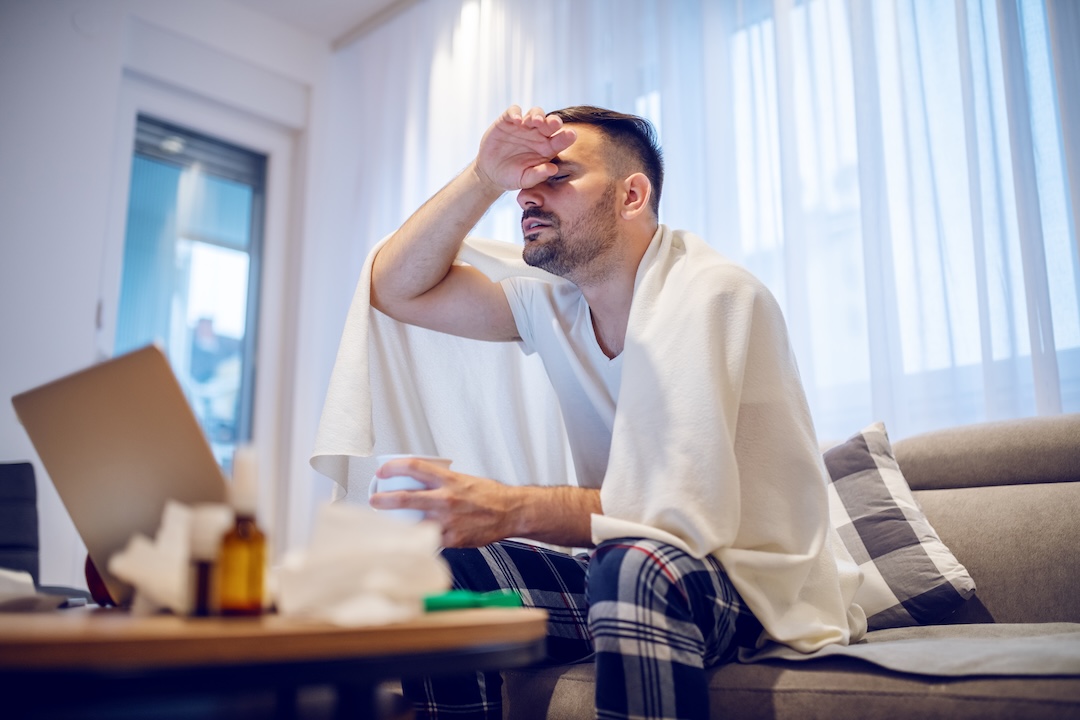Cold and Flu Season: Why It Hits Harder Than You Think
Cold and flu season is here, and that means one thing: absenteeism on the rise. Employees calling in sick, projects delayed, and extra stress on colleagues can all create a cycle that’s tough to break.
But what if there was a way to boost your body’s defenses, recover faster, and even help reduce sick days?
The secret weapon isn’t just hand sanitizer—it’s sleep.
When the weather cools down, viruses like influenza and the common cold thrive. Close indoor contact, dry air, and the hustle of the ‘ber months all increase exposure. Your immune system is your first line of defense, but it needs the right fuel and that includes adequate rest.
Research shows that poor sleep isn’t just a nuisance, it can weaken your immune system, making you more susceptible to infection. In fact, people who sleep less than 6 hours a night are significantly more likely to catch a cold than those getting 7–8 hours of quality sleep.
Why Sleep Is the Ultimate Immune Booster
During sleep, your body produces infection-fighting cells and antibodies, repairs tissue, and balances hormones. Without enough sleep, this process gets disrupted, which can:
- Increase susceptibility to illness
- Slow recovery time
- Reduce focus and productivity at work
Getting consistent, quality sleep isn’t just about feeling rested—it’s about staying healthy, reducing sick days, and performing your best at work.
How to Stay Healthy and Minimize Absenteeism
These habits can help you strengthen your immune system, improve your sleep, and bounce back faster this cold and flu season:
1. Prioritize 7–9 Hours of Quality Sleep
- Stick to a consistent bedtime and wake time, even on weekends.
- Keep your bedroom cool, dark, and quiet.
- Avoid screens at least an hour before bed to promote melatonin production.
2. Boost Your Immune System Naturally
- Eat nutrient-rich foods like fruits, vegetables, lean proteins, and whole grains.
- Stay hydrated—water supports every bodily function, including immune defense.
- Include gentle exercise; even a daily 20-minute walk can strengthen immunity.
3. Manage Stress
High stress can impair your immune system and disrupt sleep. Try meditation, deep breathing, or journaling to keep stress in check.
4. Don’t “Power Through” Illness
If you feel sick, rest. Recovery time is shorter when you allow your body to heal, which in turn reduces the total number of days away from work.
5. Create a Workplace Culture That Supports Health
Encourage employees to prioritize wellness. Flexible schedules, remote work options, and paid sick leave can all reduce the spread of illness in the workplace.
Sleep Is More Than Rest—It’s a Strategy for Wellness
Cold and flu season doesn’t have to mean a season of missed work and compromised health. By prioritizing sleep and recovery, you give your body the tools it needs to fight infection, recover quickly, and stay productive.
At Sleep Therapeutics, we believe that healthy sleep isn’t a luxury—it’s a strategy for wellness and performance. With the Sleep First program, employees and employers alike can take steps to optimize sleep, improve immunity, and reduce absenteeism during cold and flu season.
Want to help your team stay healthy this season?
📧 Contact the Sleep First Team at sleepfirst@sleeptherapeutics.ca or Book a Meeting to learn how better sleep can lead to fewer sick days and more productive workdays.
💤 Struggling with your own sleep? You don’t have to wait for a workplace program—book a free call with one of our sleep specialists to talk about your sleep health and find out if a sleep study is right for you.
FAQ: Sleep, Immunity, and Cold & Flu Season
Q: Can lack of sleep make me more likely to catch a cold?
Yes. Studies show that people who sleep less than 6 hours per night are more likely to catch a cold compared to those who sleep 7–8 hours.
Q: How does sleep help my immune system?
During deep sleep, your body produces infection-fighting proteins (cytokines) that help you recover from illness faster and resist viruses.
Q: What are the best ways to improve sleep during cold and flu season?
Maintain a consistent sleep schedule, keep your bedroom cool and dark, avoid screens before bed, and support your immune system with healthy food and hydration.
Q: Can better sleep help reduce absenteeism at work?
Absolutely. Quality sleep improves focus, reaction time, and immune defense—meaning fewer sick days and more productivity.






